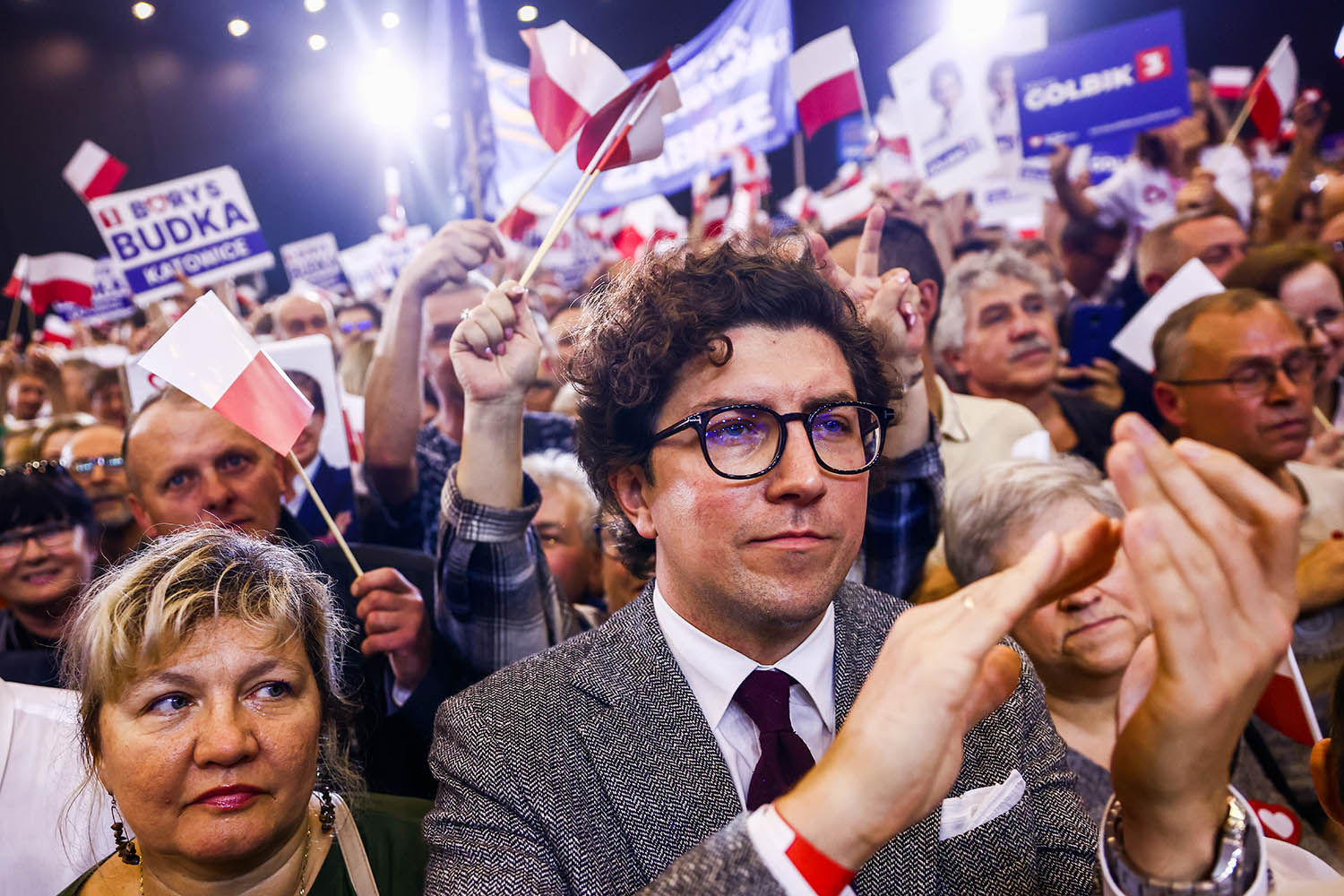
Poland’s election result is a win for democracy, Europe, Ukraine – and Poland.
The English historian Timothy Garton Ash spent Sunday in Warsaw with friends as they voted in Poland’s most important election since 1989. Back then, one said, her dominant emotion had been hope. This time it was fear.
So what? Whisper it – or shout it from the rooftops, depending on your confidence level – but Poland’s voters have channelled that fear into a stunning tactical win for progressives that denies the ruling Law and Justice Party (PiS) a majority and creates a path to the prime minister’s residence for Donald Tusk.
Tusk’s Civic Platform and its allies are positioned to form a new coalition with a little over half the seats in parliament, on a historic 74 per cent turnout that saw long queues at polling stations and more under-29s voting than over-60s.
There are caveats (see below), but as things stand Sunday’s vote was
- a win for Poland – which now has a chance to rescue the rule of law from a party that has spent eight years twisting it out of shape;
- a win for Ukraine – whose closest western neighbour should now swing back behind the mission to repel Russia after wobbling on weapons and grain exports;
- a win for the EU – whose biggest eastern member has shown that a long drift towards autocracy can be reversed; and above all
- a win for democracy – which has taken a beating from Myanmar to Mali but has prevailed on a tilted Polish playing field.
Confounding. The emergence of anti-democratic politics in what were supposed to be the enthusiastic new democracies of post-Soviet Eastern Europe has been confounding for older EU members and for Brussels. They’ve proved largely powerless to stop populists lying, abusing the institutions of state and pandering to nativism for the sake of power. The trend has been most exaggerated in Hungary (pop. 9.7 million), but most dangerous in Poland (pop. 38 million).
Capture. Under Jarosław Kaczyński, the PiS has systematically re-staffed and repurposed key bastions of Polish democracy for its own purposes. Its stacking of the judiciary with politically compliant judges has been comprehensively documented and reported. Outcomes include a de facto abortion ban and “LGBT-free zones” covering a third of the country.
Less widely understood outside Poland has been the PiS’s capture of
- Poland’s intelligence and diplomatic services, in which officers suspected of disloyalty to the party have been replaced with others willing to surveil their own colleagues;
- the civil service and state-owned industries, in which the party has built up a system of patronage familiar to older Poles from pre-democratic times;
- state-controlled TV stations, where hundreds of journalists have been purged in favour of hacks willing to peddle PiS propaganda on migration, gay rights, the EU and the opposition; and
- the electoral system, which has slow-rolled a redistricting plan in favour of conservative rural areas and limited voting opportunities for mainly progressive overseas voters.
Charisma. Tusk is a Blairite figure who started on the centre-right rather than the centre-left but earned a second act in politics by articulating the hopes and frustrations of Poland’s pro-EU urban middle class.
Prime minister from 2007-14 and President of the European Council from 2014-19, he’s as popular in the cities as he is loathed in the PiS’s eastern rural heartland. “Change for the better is inevitable,” he told huge, cheering crowds in Warsaw two weeks ago. That was true only if voters agreed Kaczyński’s co-opting of the state had to stop. It seems they did – nudged by the EU.
Cash. A promise of up to €35 billion in EU funds withheld because of Kaczyński’s assault on the rule of law has added rocket fuel to Tusk’s campaign.
Caveats. That money will take time to be disbursed, and won’t materialise at all if Tusk can’t form a coalition. Kaczyński, still leader of Poland’s single biggest party, will likely be given the first chance – and none other than Lech Walesa, founder of Solidarity, warned yesterday Kaczyński would “come up with something” rather than cede power.
And yet… PiS’s only potential coalition partner on the far right has said it isn’t interested. Tusk by contrast has partners lined up to his left and on the centre-right. They’re smiling in Warsaw, and the sound of autumn winds in Brussels and Kyiv could be sighs of relief.











